Why low global prices don't reach Bangladeshi consumers
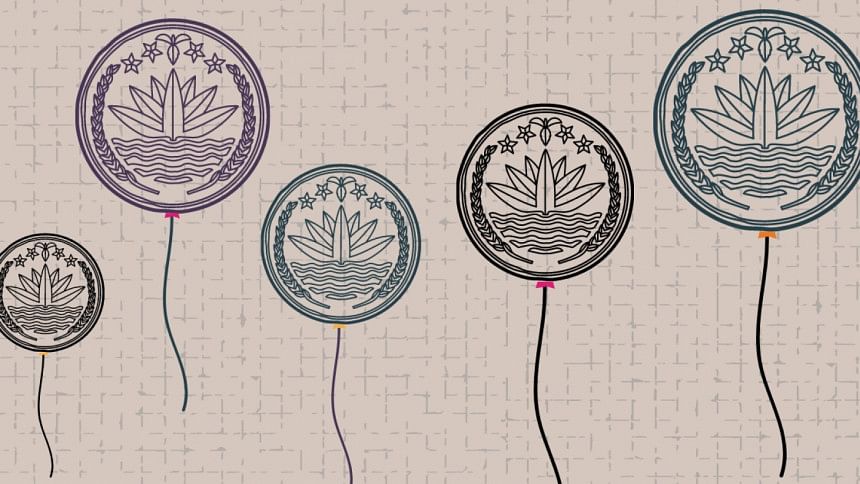
Inflation in Bangladesh continues to be a crisis. In January this year, inflation soared to 8.78 percent, according to data by Bangladesh Bureau of Statistics (BBS), exceeding the projection of 5.6 percent for FY2022-23 by the government. This surge is partly attributable to imported inflation as the country heavily relies on fuel and other essential commodity imports. The high fuel prices, transportation, and logistical costs associated with global inflation have also impacted locally produced items. However, this inflation can partly be attributed to imperfect market mechanisms as well.
In Bangladesh, high commodity prices in the global market are often used as an excuse to justify price hikes in the domestic market, even if there is no direct correlation. This is particularly true for critical commodities such as fuel, edible oil, and sugar, which the country imports. Any increase in global prices for these commodities inevitably gets passed on to the consumers without any delay.
This pass-through effect only happens during price increases, however; the domestic market does not benefit when prices fall in the international market. Importers justify that by claiming that their stocks are from when the prices were high, and they cannot sell the products at lower prices immediately following a drop in the global prices. By this logic, the commodities that are imported at cheaper rates should also be sold at lower prices till the old stocks are depleted even if there is a price hike in the international market. But when the international prices go up, some importers immediately increase prices even for their old stocks.
Though irrational price setting is a regular phenomenon in Bangladesh irrespective of global crises, importers are now blaming the costly US dollar for an increase in the cost of imported goods. The government has tried to reduce duties on some commodities from time to time. But traders say this does not help them reduce the gap created due to a sharp depreciation of the taka over the last few months.
While this is a policy failure on the government's part, the consumers are to bear the brunt of it. Leaving aside imported items, locally produced commodities are also being sold at exorbitant prices, taking advantage of the difficult situations. Here again, the cost of transportation and logistics are cited to justify price hikes. Indeed, opportunists at all levels take advantage of the authorities' weak monitoring mechanism.
Apart from imported items, price differences in some locally produced commodities are also high. The price of 1kg of beef has increased by 25.70 percent in the domestic market even though it has declined by 5.98 percent in the international market.
Some examples of price differences between local and international markets would help understand the situation. Data from the World Bank Pink Sheet and the BBS indicate that the world price of soybean oil has dropped by 10.46 percent during February 2022-February 2023, but increased by 12 percent in Bangladesh. During the same period, the price of sugar has increased by 31.45 percent in the world market, which has increased by 41.91 percent in the Bangladeshi market.
Apart from imported items, price differences in some locally produced commodities are also high. The price of 1kg of beef has increased by 25.70 percent in the domestic market even though it has declined by 5.98 percent in the international market. Of course, the rate of price increase of local rice is lower than Thai and Vietnamese rice during the February 2022-February 2023 period. Bangladeshi Nazirshail, Paijam and Irri/Boro rice increased by 21.61, 9.85, and 14.29 percent, respectively, whereas the prices of both Thai and Vietnamese rice increased by more than 30 percent over this period. However, the price of rice in absolute terms is higher in Bangladesh than in those countries. For example, Bangladeshi Nazirshail costs Tk 84 per kg while Thai five percent parboiled rice costs Tk 49 per kg.
The skyrocketing inflation has been further exacerbated by the frequent energy price hikes in the country. Since early November 2021, there have been various types of upward adjustment of fuel prices. With the conditionality regarding the USD 4.7 billion loan from the International Monetary Fund (IMF), it is likely that there will be further increase in energy prices as the IMF wants subsidies to be withdrawn. This will be passed on to the consumers, further increasing their cost of living.
Even though Bangladesh Petroleum Corporation (BPC) made profits during periods of low global energy prices, especially between FY15 and FY22, the public did not benefit from them. This is because the government administers and determines energy prices in Bangladesh, leaving consumers vulnerable to policymakers. When global energy prices fall, the government rarely lowers domestic prices accordingly. In 2016, energy prices were reduced by only a small amount when global prices dropped.
Since a few big players control the market and manipulate the prices to their advantage, there must be strict enforcement of the competition law. The responsible authorities should also watch the market and regulate it for the benefit of consumers. Lack of infrastructure and logistical facilities are often blamed for arbitrary prices. Due to a weak logistics network, transportation costs of goods are high. The practice of rent-seeking through collecting money from vehicles carrying products on the way to the marketplace adds to this cost. All these costs ultimately affect the prices of goods and are paid by the consumers.
The pricing system should be transparent. The presence of middlemen in the supply chains, who contribute to high prices by taking a margin, should be removed. The Bangladesh Competition Commission needs to bolster its role. The commission must establish a comprehensive database, conduct routine surveillance of dominant market players' activities, scrutinise market manipulation, and take appropriate actions. The Competition Act, 2012 should be updated to specifically address monopolies and incorporate clear antitrust provisions, accompanied by concrete penalties for violators. Close monitoring and supervision are necessary for efficient market management to keep commodity prices in check.
For an effective inflation control measure, fiscal and monetary policies play a critical role. However, without eliminating the non-economic and distortionary practices in the market, prices cannot be brought down. This requires bold and concerted measures.
Dr Fahmida Khatun is executive director at the Centre for Policy Dialogue (CPD). Views expressed in the article are the author's own.


 For all latest news, follow The Daily Star's Google News channel.
For all latest news, follow The Daily Star's Google News channel. 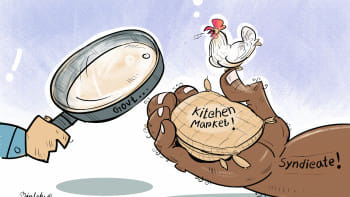
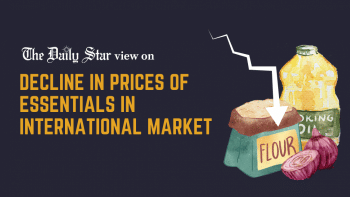


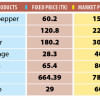



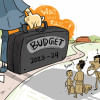


Comments